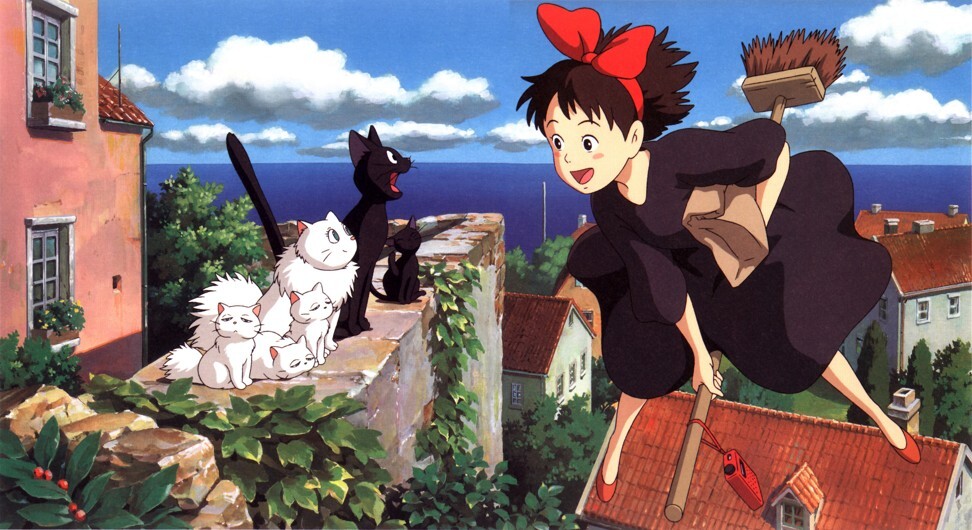
Netflix moves into Japanese animation, will start showing 21 Studio Ghibli movies from February
- Streaming giant’s customers in Asia, Europe, the Middle East, Africa and Latin America will be able to watch 21 films from Japan’s most famous animation house
- However, rival HBO has the exclusive rights to release them in the US, while Netflix has no presence in China
Online streaming platform Netflix will make more than 20 Studio Ghibli movies available to subscribers outside the United States, Canada and Japan, with a phased release beginning on February 1.
Netflix users in Asia, Europe, the Middle East, Africa and Latin America will be able to watch 21 films by Japan’s most famous animation house that are subtitled in 28 languages and dubbed in up to 20 languages.
“We’ve listened to our fans and have made the definitive decision to stream our film catalogue,” says Studio Ghibli producer Toshio Suzuki.

“With the streaming service coming along, it only increases the choices the audience can make [for how and where to watch films], which I think is a very positive thing for creators.
“Through this partnership with Netflix, I hope that people of all ages, from very young kids to elderly people, will enjoy our movies,” adds Suzuki, who hopes the films will carry on the success they had in Japan.

The first batch of animated films to be released on February 1 are Castle in the Sky (1986), My Neighbor Totoro (1988), Kiki’s Delivery Service (1989), Only Yesterday (1991), Porco Rosso (1992), Ocean Waves (1993) and Tales from Earthsea (2006).
Oscar-winner Spirited Away (2001) will be made available on March 1 together with other titles on Netflix, including Nausicaä of the Valley of the Wind (1984), Princess Mononoke (1997), My Neighbors the Yamadas (1999), The Cat Returns (2002), Arrietty (2010) and The Tale of Princess Kaguya (2013).
From April 1, users can enjoy Pom Poko (1994), Whisper of the Heart (1995), Howl’s Moving Castle (2004), Ponyo on the Cliff by the Sea (2008), From Up on Poppy Hill (2011), The Wind Rises (2013) and When Marnie Was There (2014).

“[We blended] top technology with human efforts to help translate these stories in a meaningful way that resonates with other parts of the world,” says Aram Yacoubian, director of original animation at Netflix, a global internet entertainment service with 158 million users in more than 190 countries.
Yacoubian also says Netflix will recommend Studio Ghibli films to users who have watched titles of similar genres and promote the launch through social channels.
“The Netflix team convinced us with their consistent love and energy for finding the best ways to promote the incredible and unique catalogue worldwide with respect to the Studio Ghibli philosophy,” says Vincent Maraval, CEO at Wild Bunch International, the Paris-based distribution partner for the collaboration, in a statement.

Studio Ghibli has produced 22 feature-length films since 1985, when it was founded by Japanese animated film directors Isao Takahata and Hayao Miyazaki.
Miyazaki’s Spirited Away won the Oscar for best animated feature in 2002, becoming the first hand-drawn and non-English- language animated film to win an Academy Award.

